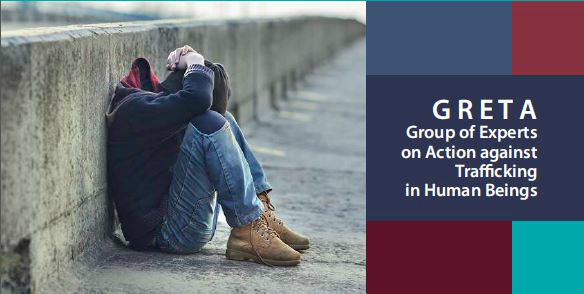This year, the Inter-Agency Coordination Group against Trafficking in Persons (ICAT), of which the Council of Europe is a partner, decided to focus in particular on trafficking in children, who represent 28 per cent of the total victims of trafficking identified worldwide (20 per cent girls and 8 per cent boys). To assist in the elaboration of a child-specific international response, today ICAT released an Issue Brief addressing the scale of trafficking in children and young people, and discussing child-specific drivers and challenges. ICAT also formulated a series of key recommendations, stressing first and foremost the importance of placing the best interests of the child as the primary consideration in laws, policies, programmes and interventions on human trafficking. To launch the Issue Brief, ICAT organised a panel discussion in New York, together with the Group of Friends United against Human Trafficking and the non-governmental organisation, Rani’s Voice. UNICEF, the 2018 Chair of ICAT, moderated the event and presented the key messages pinpointed in the Issue Brief.
The Council of Europe Group of Experts on Action against Trafficking in Human Beings (GRETA) dedicated a thematic section to trafficking in children in its 6th annual report, raising alarm about the high prevalence of child trafficking in Europe and the particular risks of migrant and refugee children falling victim to trafficking and exploitation. GRETA’s report provided examples of good practice from different countries, including mobile units set up to detect vulnerable children and specialised centres supporting child victims of trafficking.
GRETA’s President Siobhán Mullally said: “States parties to the Council of Europe Anti-Trafficking Convention must create a protective environment, so as to make children less vulnerable to trafficking and exploitation. Children not registered at birth, children from disadvantaged communities and unaccompanied or separated children are particularly vulnerable to trafficking. Many child victims of trafficking are not detected and do not receive protection due to gaps in the identification procedures, failure to appoint legal guardians, inadequate resourcing of child protection systems, and lack of appropriate and secure accommodation.”
GRETA has recently published another report raising concerns about trafficking for labour exploitation, which has emerged as the predominant form of trafficking in several European countries. GRETA calls on States Parties to the Convention to work closely together with NGOs, trade unions and the private sector to help end this heinous exploitation and abuse.
GRETA highlights the important role played by civil society in combating all forms of human trafficking and refers to the recently adopted Resolution 2226 (2018) in which the Parliamentary Assembly of the Council of Europe calls on member States to, inter alia, review and repeal or amend legislation that impedes the free and independent work of NGOs and ensure that this legislation is in conformity with international human rights instruments regarding the rights to freedom of association, assembly and expression, and to ensure that NGOs can seek, receive and use transparent funding and other resources, whether domestic or foreign, without discrimination or undue impediments.
Useful publications
GRETA's 6th annual report - thematic section on trafficking in children




